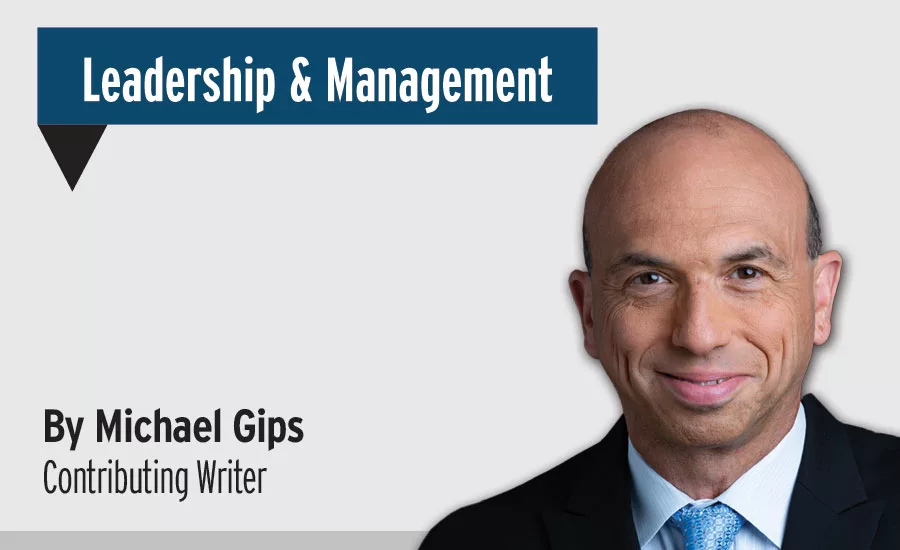Leadership is Wasted on Leaders


Youth is wasted on the young,” goes a popular witticism, which has been ascribed to George Bernard Shaw, Oscar Wilde, Michel de Montaigne and others. The point is that young people have the vitality and enthusiasm to achieve tremendous things, but they usually lack the wisdom, experience and maturity to actually do so.
Equally true is that leadership is wasted on leaders, but for different reasons. It’s not that people who are in a position of leadership — CEOs, politicians, coaches, clergy, judges and so on — necessarily lack any quality that lets them excel as leaders. It’s that they are expected to lead and to lead followers through difficult situations. They signed up for it.
What’s truly extraordinary is when someone not in a traditional position of authority steps up to leadership.
Of the 90,000 books on leadership that Amazon.com sells, listed first (not including sponsored results) is Doris Kearns Goodwin’s highly praised 2018 work, “Leadership in Turbulent Times.” Kearns Goodwin chronicles the exploits of four U.S. presidents at their defining moments: Abraham Lincoln through the Civil War leading up the Emancipation Proclamation; Theodore Roosevelt during the coal strike, as the gears of the Industrial Revolution were grinding down workers; Franklin D. Roosevelt and his first 100 days in the heart of the Great Depression; and Lyndon Johnson coming around in his thinking on social justice to push through a civil rights platform.
These men, like most world leaders, were put in the position to lead, were expected to lead and were regularly presented with situations and issues in which they could exhibit leadership. That history bore out their judgment distinguishes them from their presidential colleagues who were defined by failure: Jimmy Carter for his inability to navigate the nation out of an oil crisis and economic “stagflation” or rescue the American hostages in Iran; James Buchanan for allowing the South to secede; Andrew Johnson, for poor leadership during Reconstruction efforts, and Warren Harding for allowing a culture of corruption to flower around him.
Wharton Professor Michael Useem calls the critical confluence of time, place, situation and individual as “The Leadership Moment,” the title of his 1998 book. While that book explores nine such leadership moments, from the man who brought Apollo 13 down to Earth to the President of El Salvador who ended his country’s civil war, Useem, too, focuses on people in power.
But leadership is much more wondrous and thrilling when it is exercised by someone without a pulpit or even an audience. It’s like grass growing in the desert. It’s why Todd Beamer resounds as a symbol bravery and grit in the face of terrorism, why Rosa Parks is synonymous with quiet grace and resolve in the face of institutionalized discrimination and why Malala Yousafzai epitomizes how a single person can stand up to a tyrannical regime.
We all greatly appreciate the tremendous sacrifices made by medical professionals, emergency responders, daycare workers, delivery drivers and workers in food and health supply chain. But there’s a special place for people whose jobs don’t require that kind of sacrifice but insert themselves into the fray. Many of them are security professionals.
It’s people like Ohad Zaidenberg, Lisa Forte, Radoslaw Gnat and Joshua Saxe, cybersecurity professionals who have created or grown groups of like-minded practitioners who volunteer their time to send threat data to healthcare institutions to help them prevent cyberattacks and damage to their resources and medical infrastructure.
It’s people like James Hankey, a security executive who took time off to connect self-isolated vulnerable people in his community with volunteers who could support and supply them with basic provisions.
It’s people like Annie Glass, a third-year criminal justice major at Northeastern University, who co-ops as a security officer at Boston Medical Center.
It’s people like Anthony Miller, who connects people vetted through the U.K.’s Security Industry Authority to help people in need or at risk due to the pandemic.
Want to call out others who have made a difference? Share some stories with me (mike@gipsinsights.com) or Diane Ritchey (ritcheyd@bnpmedia.com). We want to share your Good Security News.
Let’s not waste leadership on the leaders.
Looking for a reprint of this article?
From high-res PDFs to custom plaques, order your copy today!






